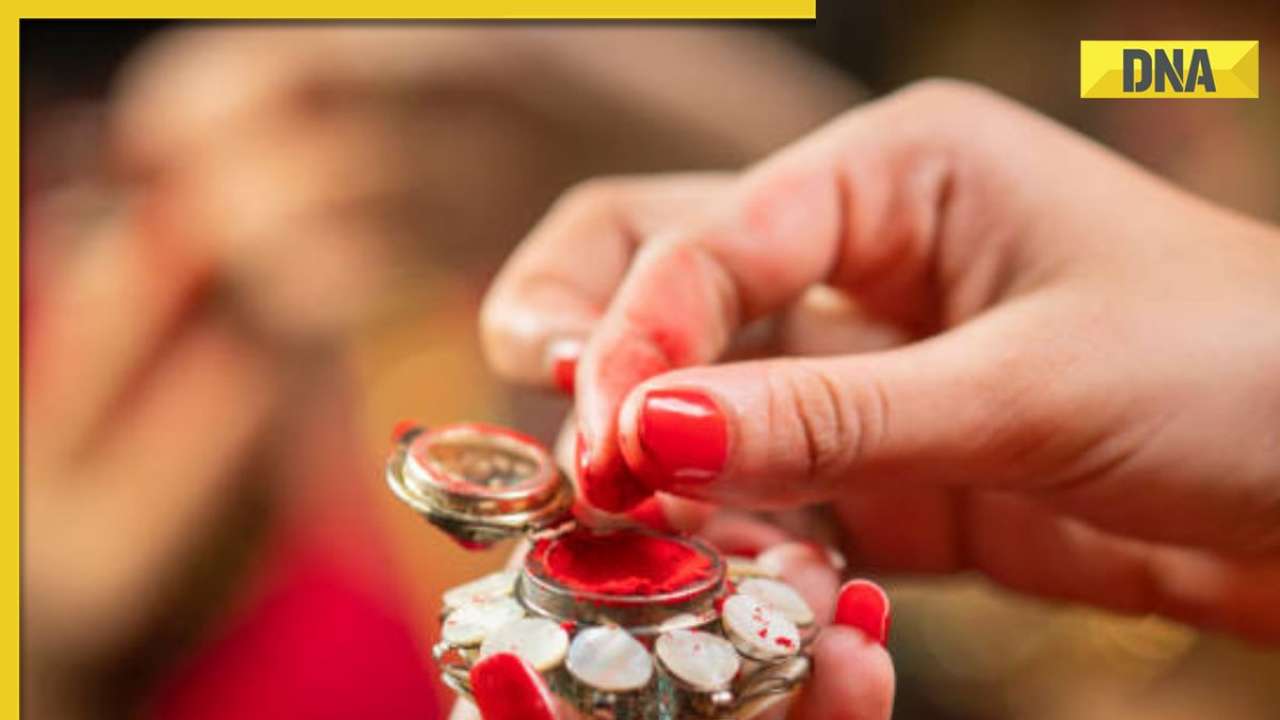
Explained: what is the significance of 'sindoor' in hinduism? Origins, symbolism and mythology
- Select a language for the TTS:
- UK English Female
- UK English Male
- US English Female
- US English Male
- Australian Female
- Australian Male
- Language selected: (auto detect) - EN
Play all audios:
Explore the origins and symbolism of sindoor in Hindu weddings. As an occasion steeped in tradition and rich in cultural significance, marriages under the Hindu religion are a vivid showcase
of rituals and symbolism that have been passed down through the ages. One such ritual, the application of sindoor or vermillion powder by the groom on the bride's forehead, carries
tremendous importance. Here, we will delve into the origins and symbolism of this ancient custom. The genesis of sindoor can be traced back to ancient eras when it was produced from turmeric
and saffron. With the passing of time, the composition of sindoor has transformed and it is now typically made from vermillion powder. The red hue of sindoor is believed to epitomize love,
ardor, and steadfastness, making it an apt emblem for a Hindu wedding. Sindoor is daubed on the bride's forehead by the groom as a symbol of her matrimony. This gesture is considered a
sign of honor, affection, and devotion that the groom manifests toward his bride. It is put on the center of the forehead, between the eyebrows, which is believed to be the spot of the third
eye or the ajna chakra. It is surmised that applying sindoor helps in arousing this chakra, which is accountable for a person's sagacity and understanding. In Hindu mythology, sindoor
carries immense significance. As per legends, Parvati, the wife of Lord Shiva, used to wear sindhur on her forehead as a symbol of her piety and affection towards her husband. It is believed
that sindoor is Lord Shiva's favorite and women who put on sindhur on their forehead are granted a long and blissful married life. The act of putting on sindoor on the bride's
forehead is also considered a blessing. It is believed to usher in good luck and prosperity to the couple and avert malevolent spirits, protecting the couple from harm. Therefore, sindoor is
not only a symbol of love and devotion but also a source of security and blessings for the newlywed couple. READ MORE: Same-sex marriage: What does LGBTQIA acronym stand for and why it
matters in the battle for equal rights